Brick By Brick: A Recap of Ashley Canay's VividLife TV Interview
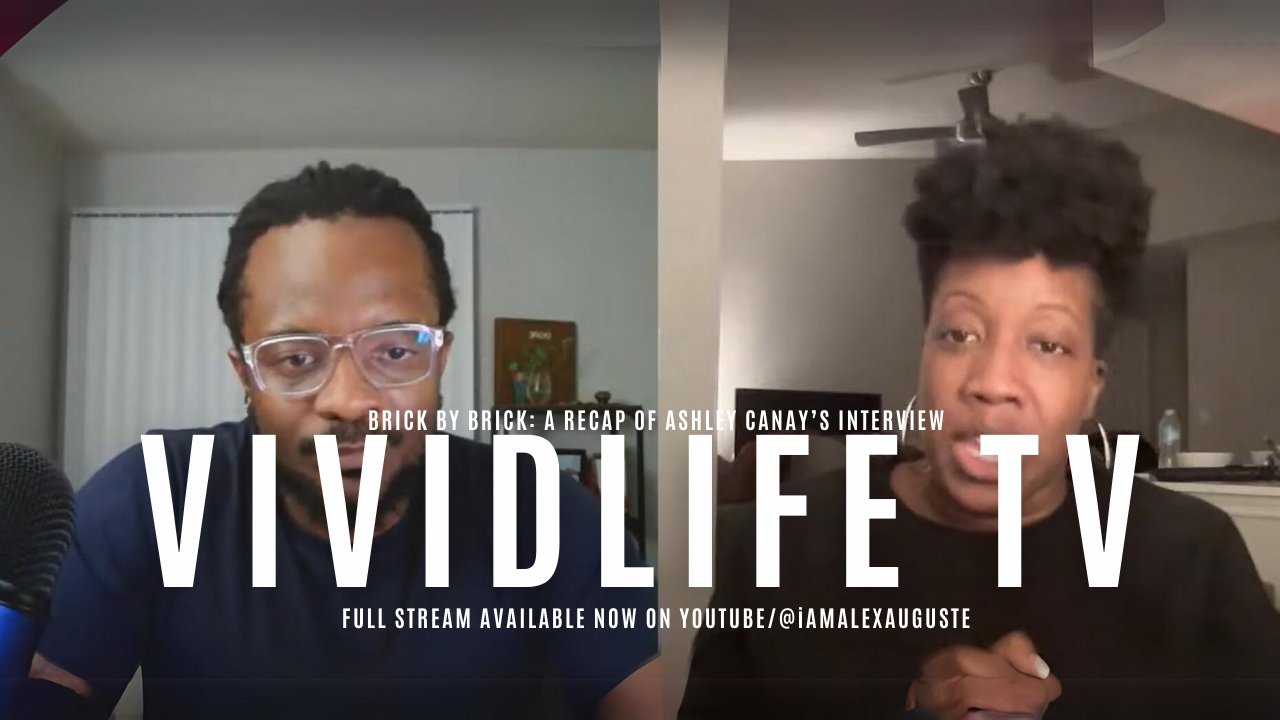
For best enjoyment of the full stream, take advantage of the chapters feature to filter through different conversation pieces of the full stream.
Last week, Ashley Canay Morrow joined me live on VividLife TV as we discussed all that there is to know about Tampa's History - both Black and White.
Kicking off Black History Month, Ashley Canay's appearance on VividLife TV with Alex Auguste gave us a space to discuss the interesting points of Tampa's history. Some of it is shrouded in mystery, some of the pieces have not all been put together as of yet, but one thing Ashley could definitely confirm is that some of it does, from time to time, has been passed through decades-long games of telephone and have been stretched to a degree.
Even I was called out on it.
During segregation, Black artists weren't allowed to play at major clubs and jazz lounges, and the clubs across the South and Eastern Coast that did allow for Black artists to come play would eventually gain the name, The Chitlain Circuit. Inclusive of cities like Birmingham, Montgomery, Memphis, and other southern cities, it's easy to overlook the possibility that Tampa was part of that circuit. With that bit of history, I had also known that Ray Charles had lived in Tampa Bay, and would have eventually started his music career in Florida and eventually on the Chitlain Circuit.
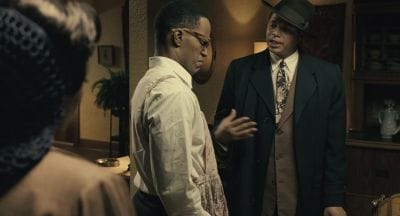
"He lived here for a year." Ashley said.
And it's true. Ray Charles would come to live in Tampa in 1947 much before his Atlantic Records days, and if you're familiar with the movies, this would be right around the time when he would meet guitarist Gossie McKee. He would meet McKee at Tampa's Blue Note, which was previously located at 1510 N Nebraska Ave.
"That's the glorifying side of Tampa," Ashley said on the January 31st live stream. "You can tell me any story, and I can tell you what really happened."
And one thing is for sure: Ashley knows her history.
Her and I shared similar interests, though from different starting points. When I got to Tampa in the summer of 2008, I was told that a small road called Bruce B. Downs Blvd was going to expand to make way for more commuting and better development in the Tampa Palms (or "New Tampa") area. That expansion wouldn't be finished for another ten years, and every time my car would hit a pothole, or everytime I had to forcefully merge into a lane because some minivan wouldn't let me in, I'd ask the same question everytime: I don't know who Bruce B. Downs is, but does he know this road is ruining his name?
And then I had to ask myself seriously, though: Who is Bruce B. Downs?
That rabbit hole leads you down multiple websites trying their best to connect the puzzle pieces of Tampa's interesting history. On one website, they talk about the Bearss Family, who settled in the Lake Magdalene area, building their home there, where it still stands today on Bearss Avenue and Lake Magdalene Blvd. Or the Platt Brothers, who developed Hyde Park, and wanted to keep the freed Blacks of West Tampa out of the area. Their contemporary at the time would include one Madama Fortune Taylor, who the Black-owned Madame Fortune speak-easy in Ybor City gets its namesake from.
We're all aware that history has odd ways of being told in America, but Tampa's history is patchy. It has inconsistencies, and it's often told in ways that center single individuals without painting a picture of the landscape and the fact that so many of these individuals are contemporaries. And that's what Ashley wants to solve.
"The Tampa Black Historians was created to help people find and learn about Tampa's Black History."
Her mission started just last January, as mentioned, drawing connections between the history she knew and the history she wanted to know. When faced with a dead end in her research, she continued digging. From trips to libraries, to reading through newspaper archives, court documents, and even City and County documents for land plats.
"What was frustrating when I started this is when I started learning about this, the information is in the books, but it's spread out across the web, and some times things are not saying the same things."
In an age where everything is digitized, we have to realize how many rocks are left unturned when we don't seek physical archives. And it was actually at that juncture that I had accidentally met Ashley Canay Morrow last year, when he reel showed up on my Instagram reels feed discussing a story about The Platt Brothers. I didn't think much of the post, and after commenting on it, I definitely didn't expect the page to DM me asking me to cite my source, and to refer to me by name.
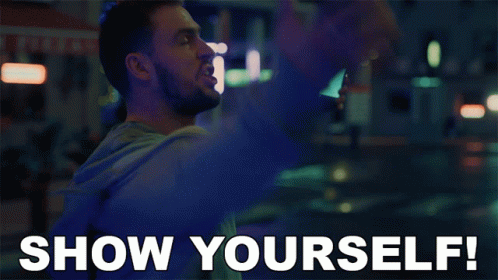
I never know whether Tampa's really small or if I've connected and networked myself into so many circles that there are overlaps. But for years before, I had seen the name Ashley Canay Photography and had never met the woman. I'd never even seen a face. I just saw the work. Shoutout to good branding, right? It wouldn't have been until 2018 when I joined a group chat for Tampa photographers and models that I would actually visible see the person behind the name. That summer I met her in passing at a photo walk and then again at a wedding expo.
When I fast-forward to last year, I was curious about why a photographer was suddenly so wrapped up in Tampa's Black History that she would make an Instagram page about it.
But that kind of answers its own question, right?

What also makes sense would be that Ashley's work, as uplifting as it may seem, also has the potential to be a bother to certain groups as well. Tampa, Florida has a problem: and that problem, like so much of America's current tiffs with history is a desire to dissociate reality from the facts.
"That Jim Crow Era in Tampa, in the 1930s, when the KKK was all up and through here, rallying at Lowry Park - that Era - is not talked about here.
Despite existing South of the Mason-Dixon Line, so many Americans want us to believe that post-Civil War, history was lined with the Good, Good, and Alright. That attempt to position history only adds more salt to the wounds of what happened.
But turning over those stones, as I put it during our live stream, can raise concerns for many people, including Ashley's mother. She shared on the stream that even her mother expressed some concern in how she was bringing to light these historical events, and cautioned her at upsetting the silent (and often invisible) viewers of her work.
"I'm not saying anybody's names. Ya'll were the ones posing for the newspaper photo."
According to Ashley, the closest thing to a response so far in regards to bringing forth some of Tampa's darker history has been that nobody knew. The stories of Jim Crow Tampa have gone undiscovered, undiscussed, and under the rugs. One story stood out in particular that Ashley called out, and that's the story of how the term, "Houstonized", came to be.

Triggering, violent, and graphic as some of this history is, though, it's worth noting that if someone doesn't want you to know it, it must be valuable enough for you to know. After our exchange via Instagram DM regarding the sources, Ashley and I had concluded that we had come across the same website - a website that has changed its copy, its sources, and has bent a little over the years for whatever possible reasons.
It's why I registered for a JSTOR account using my Google Account. Even Google searches as of recent have been called out for manipulation of searches and reduces the quality and diversity of search results. A TikTok user also called out the possibility that the so-called Mandela Effect may just be a way of changing history and seeing who can keep up with said changes. With a FREE JStor accounts, you have access to 100 Free Articles per month, giving you access to search tools like searching articles, books, and even pages for information you're looking for from thousands of digitized texts. If you're a history nerd like me - or if you fumbled being on Jeopardy before Alex Tribec's tragic passing - then JSTOR may just be for you.
The Black Tampa Historians host a Tampa Black History Meet and Greet at 7th + Grove on February 22nd at 6pm for those in Tampa looking to connect or reconnect with a variety of organizations with initiatives to restore and celebrate Tampa's history. The event features Instagram's RealTampa page, the NAACP of Hillsborough County, The Green Book of Tampa Bay, and the Urban League of Hillsborough County.
Also From VividLife TV with Ashley Canay of the Black Tampa Historians
Ashley and Alex Talk About Being Introverts vs. Extroverts or Just A Plain Homebody
Can you guess which one of us is an extrovert or a homebody?
VividLife TV: Black History, Women's History, and Noah Knigga
We discussed College Recruit, Noah Knigga, and have confirmed it's pronounced KUH-NA-GUH.
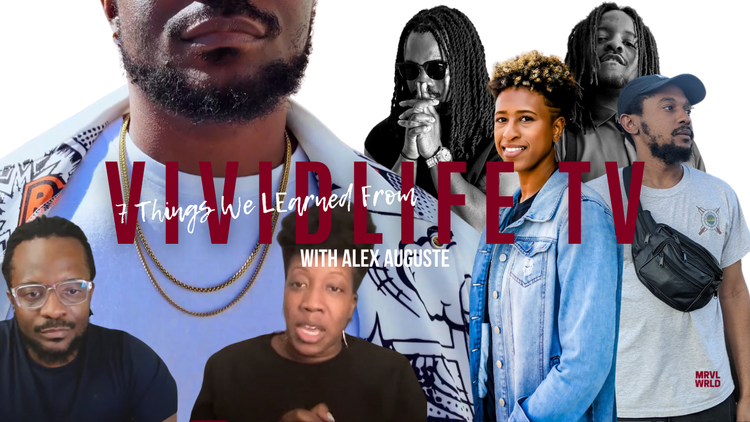



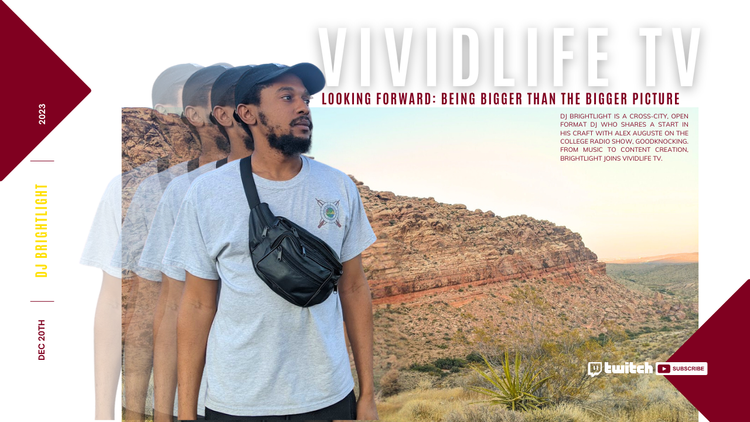
Member discussion